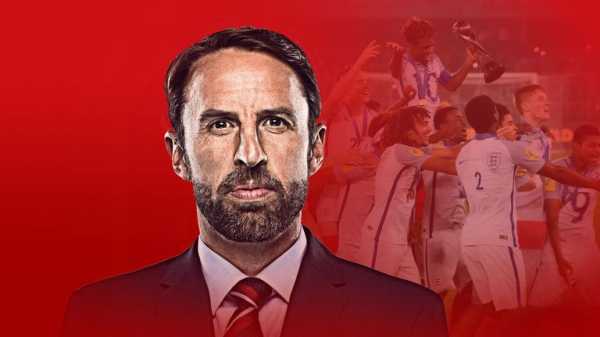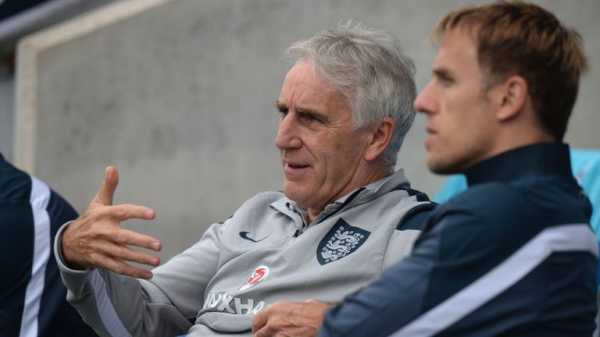
England are enjoying a period of rare success across the age groups but what’s the key? With the help of former England youth coaches, Adam Bate looks at how the country made changes to its youth coaching by encouraging players to become problem solvers.
Speaking to former England manager Steve McClaren back in 2013, he told a tale about his time at FC Twente to illustrate the difference between young players at home and abroad. He was attempting to get some tactical ideas across to one of his players and was shocked when he got 20 minutes of intelligent analysis delivered back to him in chapter and verse.
“No English player I know could have done that,” claimed McClaren. “I asked him where he’d picked that up from. He explained that he’d been doing this kind of tactical work and intelligence work since he was about 11 years old. That’s the difference between the two cultures. They teach young players how to solve problems on the field for themselves.”
Five years on and English football is learning the lesson of the importance of empowering young talent. Fabio Capello once claimed that he needed only 100 words of English to communicate, but Gareth Southgate has forged a much closer relationship with his players. Crucially, his modern approach to leadership means it is a two-way dialogue.


England vs Spain
September 8, 2018, 7:00pm
Live on

Get Sky Sports Get a Sky Sports pass
Southgate favours informal meetings because it encourages players to speak up – and that encourages them to think about the game. “I like them to have an opinion because in the 85th minute they have got to make a decision that might win or lose the game and we cannot make all those decisions from the sideline,” he explained.
The consequences were real. When England’s game against Colombia went to a penalty shoot-out, the players did not regard themselves as victims of circumstance. They had some agency. That is what Southgate means when he talks about “owning the process” and it cannot happen unless the environment has prepared players to take responsibility.
Everything is now geared towards facilitating this decision-making process. It is even written into the England DNA. Coaches are encouraged to ‘develop practices that enable players to make lots of decisions’ on the pitch. The temptation, particularly in youth coaching, is to simply instruct. But as former England U17 coach John Peacock points out, that’s changed.

“When I first began my career in coaching, I would be the first to admit that I was very command-oriented,” Peacock tells Sky Sports. “But the coaching has changed. You learn and you get more experienced and you realise that you need to get to know what the players are thinking. You have to give them a bit of ownership and get feedback on a regular basis.
“The challenge is getting them to solve some of the problems on the pitch for themselves. That has been a big plus factor in recent years. There is a time and a place for commands but there is also a time and a place for guided discovery. I think that has been a huge benefit. You have to engage players more than you had to in the past.”


England vs Switzerland
September 11, 2018, 7:00pm
Live on

Get Sky Sports Get a Sky Sports pass
As McClaren points out, it is a process that can begin long before reaching the senior side. Indeed, promoting good habits can be even more effective at a younger age. Dan Micciche was the FA’s technical lead for the U12 to U16 age group and understands the importance of this phase in a player’s development. “I call them the changing years,” he tells Sky Sports.
“You go through more changes from 12 to 16 than at any other time in your life aside from the ages of nought to three. You have new schools, puberty, growth spurts and peer pressure. It is the age where you find out whether they can build on what has come before. They start to take on board things like 11-a-side, bigger pitches, tactics and assessment.”
At that early stage, it is important to remember, as Micciche puts it, that the game remains the best teacher. But encouraging players to think about their own game is vital too. “We are in the business of long-term player development not short-term team development,” he adds, “because although they are part of a team they are still individuals.”
That is now reflected in the coaching. The culture of ‘plan, do and review’ is built into the England DNA, the blueprint for elite player development that was introduced in 2014. That means individual development plans, more discussion about what happens next, and, yes, players being encouraged to solve the problem of winning football matches.

The Premier League’s Elite Player Performance Plan (EPPP) is playing its part too. As part of the games programme, even youngsters aged between nine and 11 are competing in player-led festivals where individuals from different clubs play on the same team with no active involvement from staff. It is designed to encourage them to think for themselves.
“Young people are learning differently to how they did 20 or 30 years ago,” adds Peacock. “At the FA now there is a lot of working in small groups – coaches saying to their players, ‘this is the problem, what do you think?’ Then the coaches and players discuss the issues and reach a decision, which obviously the coach needs to be comfortable with, but the players are involved throughout the process and I think that’s healthy.
“The same thing is happening with the club academies. There is a lot more one-on-one work going on with the players. It is a team game, of course, but there are individuals within the team and you have to get them to develop themselves as individuals within that team environment. That has been a definite move in the right direction.”
It is a culture that is flowing throughout the England system, but it has been embraced at the very top. The hope is that when a top Premier League manager calls in one of his young players for a pre-match briefing some time soon, they too will be able to articulate sophisticated tactical ideas. And there will be no surprise at all if that player is English.
If you’re reading on skysports.com comment below to get involved in the debate, but please adhere to our House Rules. If you wish to report any comment, simply click on the down arrow next to the offending comment and click ‘Report’.
Also See:
Sourse: skysports.com






